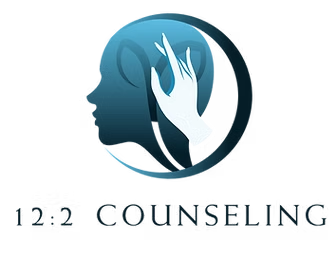How to Interview Your Prospective Therapist: Finding the Right Fit for You
.jpg)
Starting therapy is a courageous step—and choosing the right therapist can make all the difference in how supported and empowered you feel throughout your journey. What many people don’t realize is that you’re allowed to interview your therapist before committing. In fact, you should.
Here’s a guide to help you ask the right questions so you can find someone whose background, approach, and energy feel like a fit for your needs—and your story.
1. Ask About Their Background and Experience
You might start with the basics: Where did they train? How long have they been practicing? What kinds of clients do they work with most often?
Don’t discount newer therapists, though—many are bringing fresh energy, deep curiosity, and up-to-date knowledge into the room. In fact, today’s graduate programs often emphasize inclusivity, trauma-informed care, and the latest research about how the mind and nervous system actually heal. A newer therapist might also have more availability and a more flexible approach to care.
Ask:
- “Can you tell me about your training and what led you to become a therapist?”
- “How do you stay current with developments in mental health and therapy?”
2. Get a Feel for Their Style and Approach
Therapy isn’t one-size-fits-all. Some therapists are solution-focused and structured; others are relational and open-ended. Some incorporate tools like mindfulness, journaling, or somatic work; others stickmore closely to talk therapy. What matters most is how their style aligns with your comfort and goals.
Ask:
- “How would you describe your therapeutic approach?”
- “What does a typical session look like with you?”
- “Do you give homework or encourage reflection between sessions?”
3. Talk About Your Specific Needs and Identity
This is where things get personal—and meaningful. If you're living with anxiety, depression, trauma, or ADHD, or navigating your identity as LGBTQ+, BIPOC, neurodivergent, or a combination of these, it's important to find someone who truly gets it (or is open and trained to learn with humility).
Ask:
- “Do you have experience working with people navigating [specific condition] or who identify as [your identity]?”
- “How do you approach therapy through a trauma-informed or culturally sensitive lens?”
- “What are your values when working with diverse clients?”
The right therapist won’t hesitate—they’ll be able to speak clearly and compassionately about how they hold space for difference, complexity, and growth.
4. Notice How You Feel
It’s not just about what they say—it’s how you feel while you’re talking with them. Do you feel listened to? Respected? At ease? That gut feeling matters. You want to work with someone who can help you feel safe enough to be honest, vulnerable, and real.
5. Remember: It's Okay to Keep Looking
Sometimes the first person you talk to isn't the right fit—and that’s okay. Finding the right therapist is like building any meaningful relationship: it takes time, self-awareness, and honesty. Don’t be afraid to keep looking until something clicks.
Interested in Therapy? Let’s Talk.
If you're searching for someone who brings both compassion and current training into the therapy room, I’d love to connect. I’m Kim Hernandez, and I work with adults navigating anxiety, identity development,trauma, and life transitions. As a newer therapist, I combine the latest therapeutic frameworks with a grounded, relational approach to care.
Reach out to schedule a free 15-minute consultation—no pressure, just a conversation to see if we’d be a good fit.
Final Thoughts
Interviewing your therapist might feel unusual at first, but it’s an important part of advocating for yourself. Therapy should feel like a space that honors your full humanity. Don’t settle for less. Ask the questions, trust your instincts, and give yourself the support you deserve.
Subscribe to my newsletter
Stay connected and receive gentle insights, healing tips, and inspiration for your journey—subscribe to the newsletter today.
